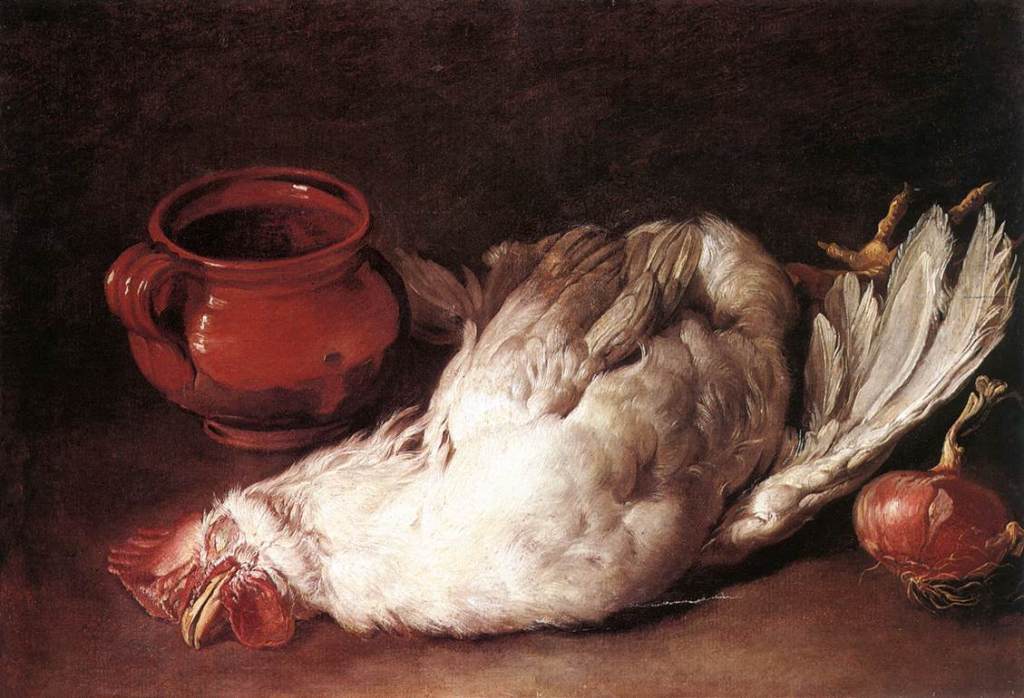Sermon based on text from Luke 14:1, 7-14
And it came to pass that Jesus was going to the house of one of the leaders of the Pharisees on the sabbath to break bread, and they all were watching him closely.
He began to tell a parable to those who had been invited,
remarking how they were choosing the best places for themselves, saying:
“When you are invited by anyone to a wedding feast,
do not recline in the best place,
lest someone even more honorable than you might have been invited,
and the one who invited you both might come to you and say to you,
“Give your place to this man,”
and then you should with shame take the lowest place.
But when you are invited, go, recline in the lowest place,
so that when the one who invited comes, he might say to you,
“Friend, come up higher!”
Then you will be glorified before all of those reclining with you.
For everyone who exalts himself will be humbled,
and those who humble themselves will be exalted.
Then he said to the one who invited him,
“When you make a meal, whether in the morning, midday, or evening, don’t call
your friends,
or your brothers,
or your relatives,
or your rich neighbors,
lest they return your invitation, and you would be repaid.
But when you make a feast,
call the poor,
The crippled,
The lame,
The blind…
and blessed you will be, because they have nothing.
They cannot repay you.
And you will be repaid in return at the resurrection of the just.
Politics and Religion.
Those are the two things that are off limits at my mother’s dinner table. You can burp the alphabet, tell an off color joke, you can come to dinner dressed in the clothes you woke up in. But you start talking about religion or politics, and You. Are. Done.
My mom says that it is because she is a good southern woman, and that it just is poor table manners, but I think really it is because these are the two topics that are most likely to start an argument. Because we don’t all think the same things, do we? In my family, we are all across the map—Baptists sitting next to atheists, sitting next to republicans, sitting next to self declared socialists. So the potential for conflict, when it comes to religion and politics, is high. And once the door is open, everyone has an opinion. Better to keep the door closed. Better to keep things safe.
Which makes for some really polite, but incredibly boring dinner parties. Let me tell you, the dinners I remember best aren’t the ones where everyone behaved themselves. I bet you know what I am talking about. In my family, there are some pretty epic stories about individuals who broke the rules, resulting in some pretty heated conversations.
Luke’s Gospel this morning describes one of those “memorable” dinner parties, I think. Who knows why the Pharisee invited Jesus to his dinner party—maybe he was just trying to be friendly, maybe he was curious about the new rabbi in town.
And like my mom, the ancient people had their own rules when they got together. Most of those rules are pretty common sense–
What are the dinner party rules? Guests are polite, right? When I go to a party and I’m the new person, usually that means milling about quietly near the refreshments. Maybe saying hi to a few folks. And if we get to talking, what are people usually going to ask you about? What do you do? Where do you live? Etc etc etc.
Not Jesus. It quickly becomes clear that Jesus is “that guy”—you know, the guy at the dinner party that everyone can’t stop staring at, or listening to, because he is making a scene.
It all starts with a sick man. There is a man at the party with Dropsy. Anyone know what dropsy is? It is severe edema. Probably caused by severe heart failure. The man is swollen up like a balloon. Makes you wonder what he is doing at a dinner party—edema can be incredibly painful, and was essential as slow, painful death sentence in Jesus’ Day—people who suffered from it slowly drowned in their own bodies.
So of course, Jesus draws their attention to this man, whose suffering is on full display while they eat and make merry on the Sabbath. He asks them—if your child or your ox was drowning in a well, would you save them on the Sabbath? What about this man, who is drowning in his body? Is there a difference?
But Jesus isn’t done. He just can’t help himself. He moves on to the guests themselves. All of a sudden we are getting advice from the Rabbi about seating assignments and guest lists. He is like the ancient Jewish version of Ms Manners, only none of these people asked him for advice.
Whenever they ask prospective presidents who they would like to meet someday or have a meal with, and they say Jesus—I think of this dinner party. Because clearly, Jesus isn’t interested in playing by anybody’s rules. Jesus isn’t going to behave and be polite. He is going to speak truth. To the poor and the sick, and to the wealthy and powerful. Doesn’t matter who you are, Jesus is going to say what needs to be said.
That’s the gift, friends, that Jesus gives us. The truth. So often, we worry ourselves sick over the impact that the truth might have—whose feelings it will hurt, how it will land, what the damage might be. And so we settle for pleasantries and half truths. We paper things over to make them sound better, and we do ourselves no favors. It feels safer, but there be dangers in these waters. We create for ourselves sinkholes and no go zones that impact not just us, but our children, and the world that they inhabit.
And that is not the world that Jesus wants for us. Jesus wants us to live honestly, and he models that in his every word and deed. So the question for us, today, I think, is this: what is the truth that we need to hear?
I wonder whether perhaps we need to hear that we have spent a lot of time worrying about things that don’t really matter.
A friend of mine shared with me once that she HATES this text, because Jesus seems to single out all of these people based on their social statues or health status. For her, this just seems wrong. Aren’t we all just people, she asks? But of course we do this all the time. If we are really honest with ourselves, we are constantly sorting ourselves against the people around us, ranking ourselves based on who seems to have the most, or the least; whose life seems better or worse than our own. And if we are honest, most of us would prefer to find ourselves, if not at the top of our pecking order, at least above the median.
Why? Because many of us have been raised to believe that these are the things that define us. That our job, our house, our stuff, even our health are the things that matter. That our worth is roughly equivalent to our investment account or the appearance of our home. A fellow clergy person shared with me that when he was young his dad raised him to grow up and take care of his family. So he did. He got a job, and he lived at his job. Barely saw the family that he was trying to provide for. He was just doing what he had been taught.
And perhaps you may notice as well that these are things that we think we can control. We decide what we do, where we live, what car we drive, whether we work on at the gym every morning. And if we can control them, it can be tempting to believe that others can too. So we judge the poor, the unemployed, the sick. Can’t you just get a job? Can’t you stay out of trouble? Can’t you just take care of yourself? How quickly grace evaporates when we think we have control. We do this. We do this.
But not Jesus. Jesus will have none of that. For Jesus, dinner tables aren’t just dinner tables. They are practice grounds for the great banquet of the Kingdom of God, and in the Kingdom of God, everyone is invited to the dinner party. All of our jockeying, all that sorting that we waste our time worrying over, none of that matters in God’s house. If we are honest, those things can be a weight around our necks, pulling us down and away from what really matters. And what really matters? Paul perhaps said it best when he said: let mutual love continue. What matters is the community that gathers at Christ’s table—not where we sit, but that we are there. Together. What matters is that the Jesus who sat at that table and pissed off the Pharisees didn’t preach anything he didn’t also do himself—for Jesus built a ministry out of welcoming the lonely, feeding the hungry, healing the sick, whether those people had everything or barely enough to get by.
You know, earlier this week I was visiting a friend in North Carolina, and I went for a run. And while I was running, I started noticing all of this trash on the side of the road. Cups, bags, half eaten fruit, scattered everywhere along the freeway. Honestly, it was a little bit disgusting.
And I found myself thinking as I ran along, how often I look past the trash on the side of the road. How often I accept that as the price of admission for living with other people. How often we all agree that we will just pretend it isn’t there, or pay someone else to deal with it.
But then there’s that one person. In my experience, they are usually someone you never would have noticed. In my neighborhood growing up, it was an elderly immigrant from Vietnam. Every afternoon, I would see her walking along the side of the road that I passed almost daily, picking up the trash. Taking the time to pay attention. Noticing what was wrong and setting it right.
That is the goal, friends. Not a peaceful dinner table where we never talk about the issues that trouble us. Not a society where we look past the suffering of others. The table of grace is one where we notice what is wrong, and endeavor to set it right. Where we are willing to take the time, even if it gets our hands dirty, even if nobody notices, even it it seems like it doesn’t change a dang thing.
Why?
Because we worship Jesus, who entered this world poor and weak and small so that he could teach us about a love that doesn’t rank or divide, or exclude.
We worship Jesus, who doesn’t care who you are or what you have—he just bids you come.
We worship Jesus, whose table is open to all of us, because whatever we have, we all get hungry and thirsty, and God would feed us.
We worship Jesus, who is the same today, yesterday and forever.
We worship Jesus. THAT guy at the table.
And that is enough.







